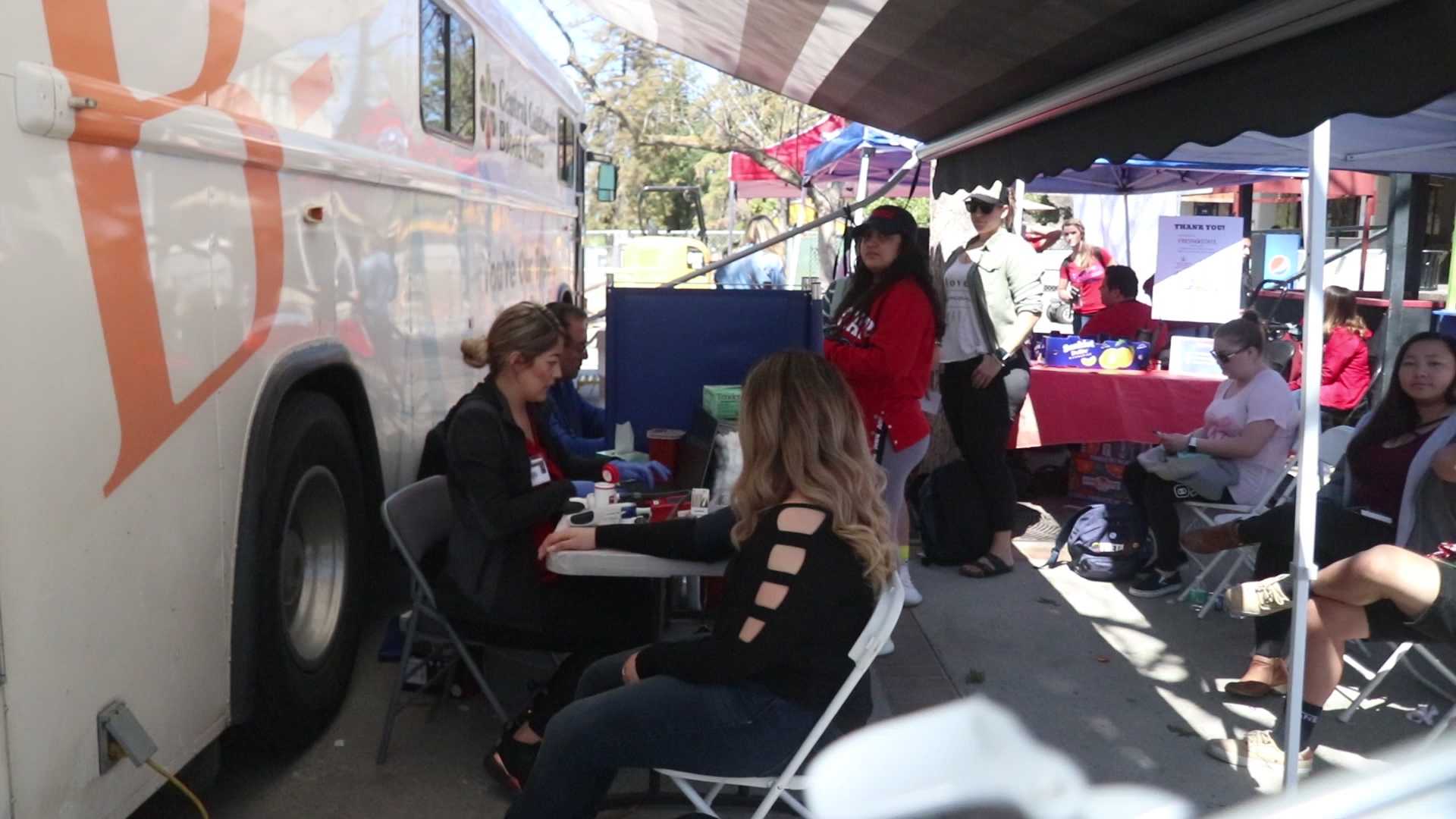Fresno State students, faculty and community members had the opportunity to become lifesavers during the Fresno State Cesar E. Chavez Blood Drive from March 26 through 28.
The blood drive was sponsored by the Fresno State Richter Center and the College Assistance Migrant Program (CAMP). It is part of a national blood drive in which student organizations from various campuses compete to reach the most registered and first-time donors.
Each year, one CAMP student takes the lead in executing the three-day event, along with volunteer support from the program’s freshmen. The winner of the national competition earns a $1,000 scholarship and recognition of the program.
The event was sponsored by student organizations, and Fresno State media, communication and journalism (MCJ) students were tasked with promoting the drive and raising awareness about the importance of donating blood as part of their service learning class.
“It’s so special because you’re getting to do PR, but you’re also saving lives at the same time. And that’s just really rewarding,” said Hayley Marciochi, an MCJ senior and co-coordinator of the event. “One pint of blood can save up to three people’s lives.”
Another MCJ student who helped coordinate and promote the event was senior Jacqueline Solorio-Ayala. She said one of the benefits of hosting a blood drive on the university campus was to introduce people to the process of giving blood at a younger age.
“It’s more like the older community that are constantly donating. So we really want the young generation to be able to do that,” Solorio-Ayala said. “So if they’re constantly doing it now, for the rest of their lives, they can be a donor for life, which is really important.”
One Fresno State freshman who was a first-time donor, Mazaya Moua, said she was nervous before donating but afterward said it was something she would do again.
“I think a lot of people are scared of giving blood,” Moua said. “Once I went in, it wasn’t as scary as I thought it would be.”
Moua also said that having the blood drive on campus made giving blood more accessible.
“It makes it easier, because otherwise I wouldn’t know where to go to donate blood,” she said.
According to Alexa Hammerschmidt, an MCJ student who helped with the promotional campaign, the No. 1 reason why applicants were turned away was due to low iron levels.
Hammerschmidt said that individuals can increase their iron levels and their chance of being accepted by eating plenty of leafy greens, meats, whole-grain bread and drinking lots of water.
The blood drive had a total of 293 units donated, 155 of which were from first-time donors.




